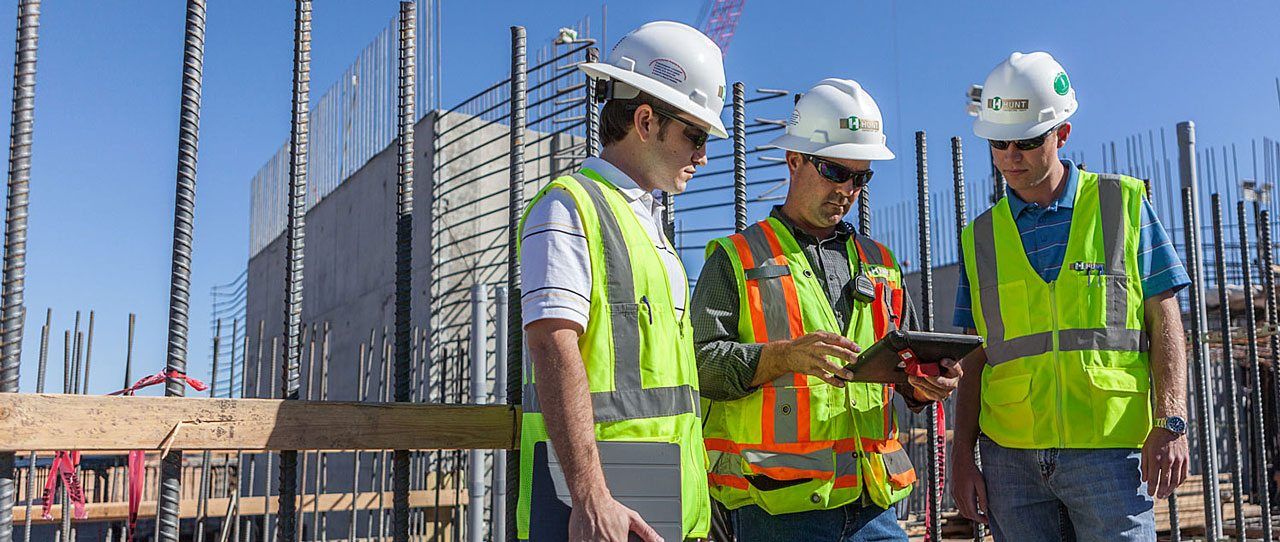Civil Engineering Jobs in Canada with Visa Sponsorship for Immigrants
With Canada’s infrastructure expansion and urban development in full swing, the need for skilled civil engineers has never been greater. As one of the most in-demand professions in Canada, civil engineering presents numerous job opportunities for immigrants, with many employers offering visa sponsorships to attract international talent. From building roads and bridges to designing sustainable urban spaces, civil engineers play an essential role in shaping Canada’s cities and communities.
This article explores everything that aspiring civil engineers need to know about working in Canada, including essential skills, top-paying regions, salary expectations, and visa options. We will also provide information on where to find job listings and how to navigate the application process, making it easier for qualified professionals to transition into the Canadian workforce and contribute their expertise.
Entry-Level Skills and Experience Required For Civil Engineers In Canada
For entry-level civil engineering positions in Canada, candidates are expected to possess a mix of academic credentials, technical skills, and relevant experience. Here are some of the fundamental requirements:
- Educational Background: A bachelor’s degree in civil engineering or a related field is typically required. For foreign graduates, having credentials assessed by an agency like World Education Services (WES) can help validate international degrees for Canadian employers.
- Technical Skills: Proficiency in industry-standard software such as AutoCAD, Revit, Civil 3D, and GIS tools is essential for civil engineers. Familiarity with tools for structural analysis, surveying, and project management can also make a candidate stand out.
- Problem-Solving Skills: Civil engineers are tasked with solving complex challenges related to construction, environmental impact, and urban planning. Employers value professionals who can analyze issues and develop practical solutions efficiently.
- Knowledge of Canadian Building Codes and Standards: Understanding Canadian codes, such as the National Building Code (NBC), is an advantage. This ensures that projects are compliant with local regulations and safety standards.
- Communication and Team Collaboration: Civil engineering projects often require collaboration with architects, contractors, and government officials. Strong written and verbal communication skills are crucial to coordinate effectively and ensure project success.
- Hands-On Experience: Practical experience through internships, cooperative education, or entry-level roles is highly valued. Internships or fieldwork experience within the construction and infrastructure sectors can provide practical insights into the industry.
Regions with the Highest Payment Structures for Civil Engineers in Canada
Salaries for civil engineers in Canada vary by region, influenced by factors like demand, cost of living, and industry growth. Below are the top-paying regions for civil engineers in Canada:
- Alberta (Calgary, Edmonton)
- Alberta’s thriving energy and construction sectors support civil engineering salaries of $90,000 to $115,000 CAD annually.
- Ontario (Toronto, Ottawa)
- Ontario’s rapid urban development and infrastructure projects offer competitive wages between $85,000 and $110,000 CAD annually.
- British Columbia (Vancouver, Victoria)
- With a focus on sustainable building and infrastructure, British Columbia provides civil engineers with salaries ranging from $80,000 to $105,000 CAD annually.
- Quebec (Montreal, Quebec City)
- Quebec’s construction and transportation projects offer civil engineers salaries of $78,000 to $98,000 CAD annually.
- Saskatchewan (Regina, Saskatoon)
- Known for growth in its industrial and mining sectors, Saskatchewan provides salaries from $75,000 to $95,000 CAD annually.
Salary Expectations for Immigrants In Canada
The following table outlines typical salary ranges for civil engineers across various regions in Canada:
| Region | Annual Salary Range (CAD) |
|---|---|
| Alberta | $90,000 – $115,000 |
| Ontario | $85,000 – $110,000 |
| British Columbia | $80,000 – $105,000 |
| Quebec | $78,000 – $98,000 |
| Saskatchewan | $75,000 – $95,000 |
These figures provide a general expectation for civil engineering salaries, which can vary depending on experience level, certifications, and specific job responsibilities.
Companies Hiring Civil Engineers in Canada
Several Canadian companies are actively recruiting civil engineers, offering visa sponsorship opportunities to attract international talent. Here are some leading employers:
- AECOM Canada
- Requirements: Bachelor’s degree in civil engineering, experience with AutoCAD and Revit, and familiarity with project management practices.
- SNC-Lavalin
- Requirements: Bachelor’s in civil engineering, experience in infrastructure projects, and strong knowledge of Canadian building standards.
- Stantec
- Requirements: Bachelor’s degree, experience with CAD software, knowledge of sustainable construction practices, and communication skills.
- WSP Canada
- Requirements: Bachelor’s in civil engineering, experience in urban planning, environmental impact assessment skills, and strong problem-solving abilities.
- EllisDon
- Requirements: Bachelor’s degree, experience in construction project management, and proficiency with civil engineering software.
Visa Types and Options for Civil Engineers In Canada
Here are some immigration pathways for civil engineers looking to work in Canada:
- Express Entry Program
- Civil engineers can apply through the Federal Skilled Worker Program (FSWP) under the Express Entry system. Points are awarded based on qualifications, work experience, and language skills.
- Provincial Nominee Program (PNP)
- Many provinces in Canada nominate civil engineers based on regional demand. Provincial nominations add points to an applicant’s Express Entry profile, enhancing their chances of receiving an invitation.
- Temporary Foreign Worker Program (TFWP)
- Employers can hire civil engineers through the TFWP if they cannot find Canadian residents for the role. This pathway typically requires a Labour Market Impact Assessment (LMIA).
- Global Talent Stream (GTS)
- The GTS fast-tracks the process for highly skilled workers in engineering fields. Candidates may receive expedited work permits if the employer meets GTS criteria.
- Atlantic Immigration Program (AIP)
- This program allows Atlantic provinces to hire immigrants for in-demand occupations, including civil engineering, helping to address regional shortages.
Where to Find Civil Engineering Job Opportunities In Canada
Here are popular job search platforms to help civil engineers find employment in Canada:
- Job Bank Canada: A government-run platform listing jobs across all Canadian provinces, often indicating if visa sponsorship is available.
- Indeed Canada: A comprehensive job board where candidates can find a variety of civil engineering positions and refine searches by location and salary.
- LinkedIn: LinkedIn is useful for networking and job searching, as well as connecting with recruiters who specialize in civil engineering.
- Engineering-Specific Job Boards: Websites such as EngineeringCareers.ca and the Association of Professional Engineers and Geoscientists (APEG) feature engineering jobs across Canada.
- Company Websites: Many engineering firms post job openings directly on their websites, so it’s beneficial to visit the career pages of companies like AECOM, SNC-Lavalin, and EllisDon.
How to Apply for Civil Engineering Jobs as an Immigrant in Canada
To successfully apply for civil engineering positions, follow these steps:
- Prepare Your Resume and Cover Letter: Highlight your relevant engineering experience, technical skills, and knowledge of Canadian building standards. Tailor your resume and cover letter for each job to match the specific requirements.
- Credential Evaluation: If your degree was obtained outside of Canada, consider having it evaluated through a recognized service like WES to ensure it meets Canadian standards.
- Understand Licensing Requirements: Some provinces require civil engineers to be licensed. Obtaining licensure from a professional body, such as Engineers Canada, may be necessary, particularly for senior roles.
- Apply Through Job Portals: Submit applications on reputable job portals, and use LinkedIn to connect with recruiters and showcase your professional background.
- Prepare for Interviews: Research common civil engineering interview questions and familiarize yourself with the projects and values of the companies you’re applying to.
- Inquire About Visa Sponsorship: During interviews or in job applications, ask if the company offers visa sponsorship. Many Canadian employers are willing to sponsor foreign workers for in-demand roles.
- Network in Professional Circles: Networking is a powerful tool in Canada. Join engineering associations or attend professional events, as these are great ways to learn about job opportunities and connect with industry professionals.
- Follow Up: After submitting an application or completing an interview, consider following up to express continued interest in the position. This step can leave a positive impression on potential employers.
In conclusion, Canada presents a wealth of opportunities for qualified civil engineers. With strong demand, competitive salaries, and numerous visa options, immigrants can find rewarding and stable careers in civil engineering across the country. By understanding the application process, meeting necessary requirements, and leveraging the right resources, civil engineers can achieve a smooth transition into the Canadian job market.






